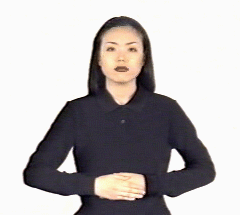times of the common people
| When it's been the Full Moon traditional festival of August 15 in the lunar calendar (ch'usôk/han'gawi), and the government is vehement in its plan to raise the alcohol tax for soju, the common people/ordinary people (seomin/sômin) and those purporting to speak in their name are having a day. Ch'usôk and the lunar new year are the times when the mood of the populace (minsim 民心) gets gauged. People go down to their homeplaces, and politicians like members of parliament get to hear what the ordinary people think - and for that the traditional site is the "traditional marketplace" (chaerae sijang) where the common people (seomin) can be met. And the mind of the people, minsim, was freezing, as conveyed by Ohmynews. Seeing what the feelings are in president Roh's political homeplace Busan is all the more interesting. If one likes to hear someone say "living is hard", (môkko) salgi himdûlda, the best chances are among people who'd be classified as these seomin. Here are the choice quotes from the Ohmynews piece, this time untranslated: 여야를 막론하고 의원들이 귀에 못이 박히도록 들은 한가위 민심은 "먹고살기 힘들다"는 서민들의 한탄이다.
Chosun Ilbo writes of the government plan to raise the tax of distilled liquors (chûngnyuju), like soju and whisky from 72 to 90%. Whisky has few open defenders against price hikes, but soju is different, for it's the drink of the common people (sômin) and a higher price affects the household budget - this are the basis of the opposition to the higher tax from the government party ranks. The government argues that the higher tax is needed not only to alleviate the increasing costs of medical care due to increased drinking, but also to add to the lacking tax revenue. Hankyoreh has a leader on the topic (also in English), not outright opposing the idea of curtailing alcohol consumption through taxation (now that is something that used to be social democratic welfare statism!) but pointing out that raising the tax on soju in order to fill the void in tax revenue caused by tax cuts for the rich is not the proper way. Seems that the translator of the leader, a certain PMS, has used the word "common people" and added seomin in the brackets. Even Kongjanim would be pleased for such a correct use of language. From the Analects: The Master replied, "What is necessary is to rectify names." Kwon Young-gil of Dem.Lab.Party in the Chosun Ilbo series "Why this person shouldn't become the president"; without taking a position on Mr Kwon, let's see what kind of argument have been used: ◆위장 서민 논란 There was also a message worth reading (I don't know about other, but for me at least) by a frequent contributor Yu Min-ho at the Jinbonuri message board with the title "Why common people like Park Chung-hee", but I'll leave that for another time. Categories at del.icio.us/hunjang: seomin ∙ socialcategories ∙ food/alcohol |




Comments to note "times of the common people" (Comments to posts older than 14 days are moderated)
Write a Comment